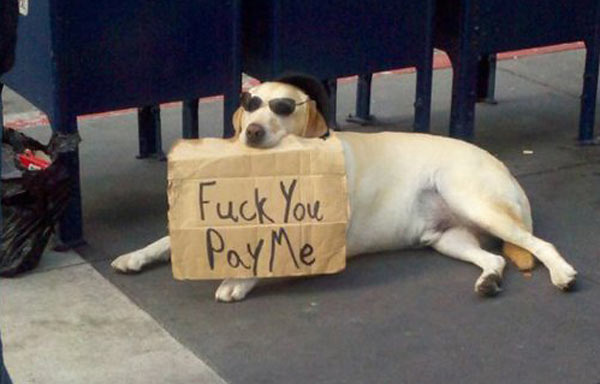Olivia Pinnock, a freelance journalist and the founder of The Fashion Debates, opened the discussion, asking her panel “How did we get to the situation where the fashion industry is so reliant on unpaid work?” Matthew Dowling, a former photographer and CEO of The Freelancer Club, quickly answered, citing that a lack of education and awareness has led to today’s mass exploitation of free labour in the fashion industry. This was proven when Mark Watson, an employment law specialist of Fox Williams LLP Solicitors, informed the incredulous crowd that, “from a legal perspective, there is no definition of an internship in employment law.” This is not to say, however, that being called an intern negates the worker from any rights. Mark Watson explained that it is the nature of the work undertaken which defines what an intern is owed: “I if you are an intern and you are working, then you are entitled to national minimum wage and you are entitled to paid holiday,” revealing that for many internships, the lack of payment is in fact illegal.
“IF YOU SELL YOURSELF SHORT, YOU WILL ALWAYS COME UP SHORT. IF PEOPLE THINK YOU WILL WORK FOR FREE THEY WILL ALWAYS THINK YOU WORK FOR FREE.”
Olivia addressed her next question to Kandiz Joni, a freelance makeup artist and co- founder of the creative agency Novel Beings: “Is it ever worth taking an unpaid job?” Kandiz conceded that sometimes an exchange of goods, for example an item of clothing to the value of your fee from a small company who cannot afford your services, can be worthwhile substitute for cash payment, but she also has a firm bottom line: “If you sell yourself short, you will always come up short. If people think you will work for free they will always think you work for free.” In a very pragmatic statement, she added: “if you’ve got no budget, you shouldn’t be doing a shoot.” Everyone in the room was in agreement when Olivia pointed out that “it’s shocking that we’ve reached a stage that people are taken aback when you say you won’t work for free.”
An underlying issue that was brought to light by the panellists was the fact that fashion has become a very expensive industry to get involved with. Owing to the prevalence of unpaid work in the largely London-centric British fashion industry, it is becoming increasingly difficult for anyone from a working, or even middle class background to participate, especially if they live outside greater London. Matthew Dowling’s view is that “if we continue on this road, we’ll end up with hobbyists with rich parents doing what we do now for money.” Drawing upon the now abolished practice of unpaid work in the legal profession Mark Watson observed that “if you starve people out of a profession we’re not going to get any fertilisation or new ideas.”
“SAY NO. JUST SAY NO.”
Despite the economic elitism that now stalks the fashion industry, the panelists universally agreed that, as a business, fashion is over-saturated with people. As Kandiz Joni described, “fifteen years ago, there was a lot of money, there were a lot less people, and brands were throwing money at the fashion industry.” With the financial crash of 2008, brands reeled in their spending to reflect the new economic climate, but there is still a huge division of wealth in the industry. As Matthew described, even those who are deemed successful in the industry are simply “surviving.” As the general public only sees the exterior allure of the industry, young people are still willing to sacrifice income for unpaid work in the hope that one day they will be earning the ‘big bucks’ they assume come with working in this industry.
After an enlightening debate, the panelists concluded their talk by offering their advice to the young professionals in front of them. What should we do when offered unpaid work? “Say no. Just say no,” was the advice given by Matthew Dowling. Mark Watson agreed, adding “you’re not going to get any help from government in the way of legislation with respect to internships. The government doesn’t see any need to change, the law is clear.” Olivia offered her rationale for rejecting unpaid work: “It doesn’t just affect me. If I say yes to an unpaid job, that person will forever be hiring someone unpaid. I owe it to my fellow freelancers and my fellow journalists to say no, otherwise there will always be someone who will say yes. If we all say no, they don’t have a choice.” Kandiz even suggested that we should “let brands get it wrong with one inexperienced person saying yes, and they will learn very quickly.”
From the short Q&A session afterwards, the consensus of the audience seemed to be that they found this advice disappointing. In an ideal world we should all respect our skills and reject work which is unpaid, but as Olivia pointed out, “there will alwaysbe someone who will say yes.” This advice, given by people who are all successful and have no need to accept unpaid work as they are established in the industry, seemed out of touch with the experience of interns today. The debate would therefore have benefitted from an unpaid worker on the panel, to represent those who feel as though they have no choice but to accept a job without the anticipation of a pay cheque. In reality, it is doubtful that the fashion industry will ever relinquish its dependence on unpaid labour, illegal as it is, and any other future proposed is something of a utopian ideal.









